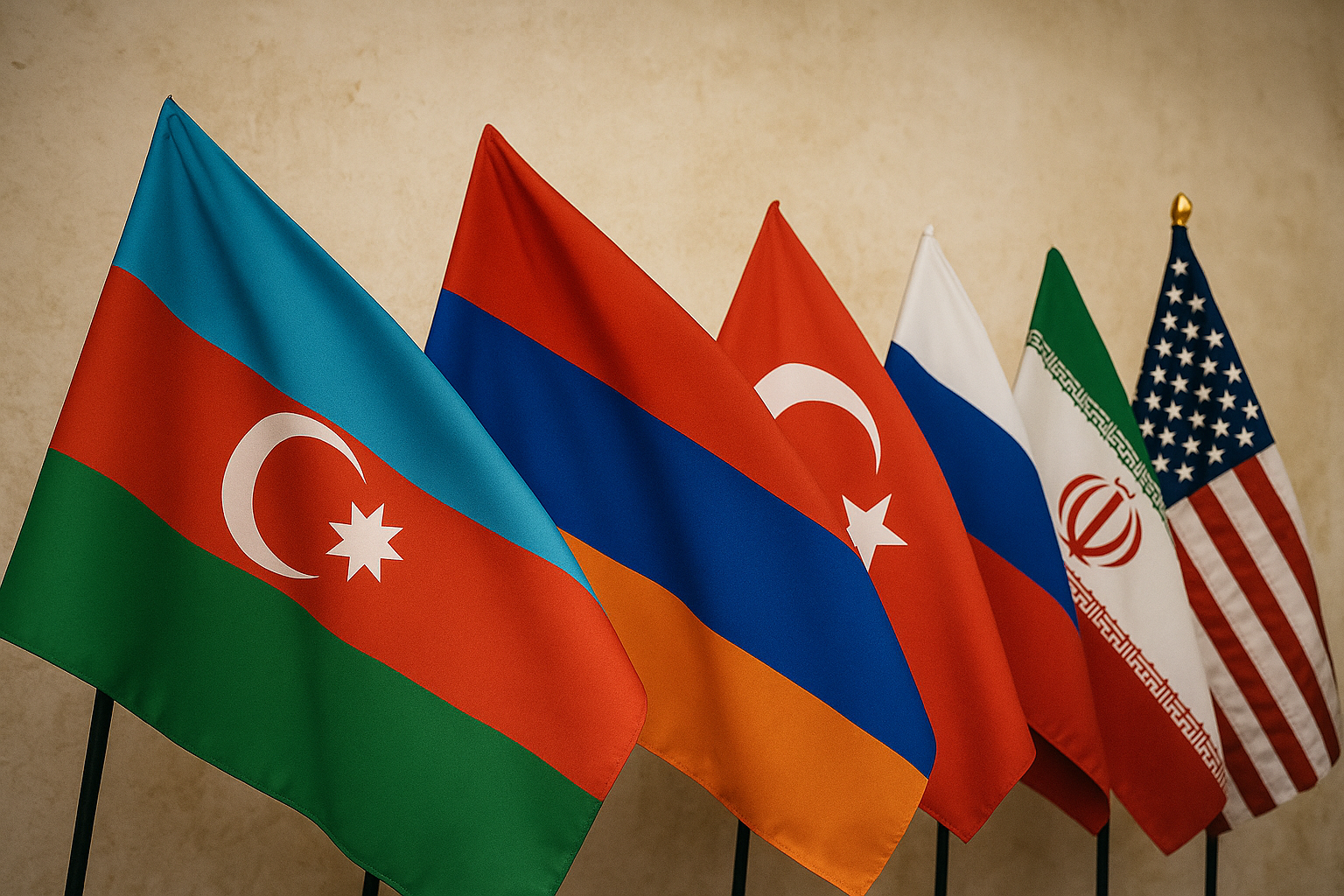
The leaders of Armenia and Azerbaijan will sign today a peace agreement at the White House in Washington. This agreement reflects a notable geopolitical shift in the South Caucasus. With Russia’s diminished influence in the region following the wars in Nagorno-Karabakh and Ukraine, Turkey is well placed to expand its influence in the Caucasus.
One of the most formidable obstacles to peace with Armenia was Azerbaijan’s determination to secure direct access to Turkey — a vital lifeline for a landlocked country eager to connect with global markets via Turkish ports. For Baku, relying on Armenia’s goodwill after multiple wars was never a viable option. The newly agreed Zangezur Corridor, which will be named Trump Route for International Peace and Prosperity (TRIPP), running through southern Armenia to Azerbaijan’s Nakhichevan exclave (bordering Turkey), resolves this long-standing problem.
For Ankara, the corridor represents more than a transportation link. It will physically connect the Turkic world from Turkey to Central Asia, bypassing Iran. This development aligns with Ankara’s long-standing vision of fostering closer economic and political ties with Turkic states across Eurasia.
Russia’s Retreat and Iran’s Setback
For years, the region has been the scene of competing alignments over the Nagorno-Karabakh issue: Turkey and Azerbaijan on one side; Russia, Armenia, and Iran on the other. That balance has tilted decisively toward Baku in the aftermath of the second Nagorno-Karabakh conflict in 2023.
The war in Ukraine has drained Russia’s military and diplomatic capacity, sharply reducing its leverage in the post-Soviet countries, including the Caucasus. Russia’s muted response to defending Armenia during the 2020 and 2023 conflicts — despite formal security commitments — was the last straw for Yerevan. The rapid Azerbaijani military operation in Nagorno-Karabakh in 2023 prompted the near-unconditional surrender of local Armenian authorities and displaced nearly the entire Armenian population, with at least 100,000 fleeing to Armenia. Yerevan accuses the Kremlin of giving a “green light” to Azerbaijan to wage war and blames it for this predicament. Armenia’s decision to participate in joint military exercises with the United States, while effectively freezing its membership in the Collective Security Treaty Organization underscores this unease with Russia. This agreement epitomizes the diminishing Russian influence in the region by formally bringing the US into a region Moscow has long considered part of its sphere of influence.
Iran also loses from this deal. Historically, Armenia has been a partner for Tehran, helping balance the Turkish–Azerbaijani relationship. But with Yerevan no longer dependent on Russian or Iranian support to counterbalance Ankara and Baku, it is more likely to deepen ties with the West. Moreover, the relations between Azerbaijan and Iran have already been lukewarm. Tehran has even accused Azerbaijan of acting as Israel’s forward base during the war between Iran and Israel in June. This deal leaves Iran more isolated and marks another blow to its already weakened regional standing after its continuous setbacks in the last two years since the escalation of the war in Gaza in 2023. This is why Tehran has been wary of such a deal.
Turkey’s Caucasus Policy
Turkey’s approach to the Caucasus has long been closely tied to Azerbaijan’s priorities. Ankara openly supported Baku during the 2020 and 2023 conflicts, providing armed drones and technical support that contributed to Azerbaijan’s battlefield successes. This alignment came at a cost to Turkey’s own economic interests — for instance, keeping the border with Armenia closed despite the potential benefits for trade in Turkey’s impoverished eastern provinces.
If normalization between Yerevan and Baku proceeds smoothly, Turkey–Armenia relations could improve rapidly. That would open the way to expanded economic cooperation, new energy projects, and a more open diplomatic environment. For eastern Turkey in particular, the reopening of land borders and direct connection to Azerbaijan could bring tangible economic benefits.
The agreement between Azerbaijan and Armenia means that both Russia and Iran would see their roles in the South Caucasus reduced. This would create space for Turkey and Western countries to pursue their interests with a free hand in the region, whether through trade, energy projects, or diplomatic initiatives. Much, however, will depend on how the agreement is implemented and on whether the parties can maintain the commitments they have made.